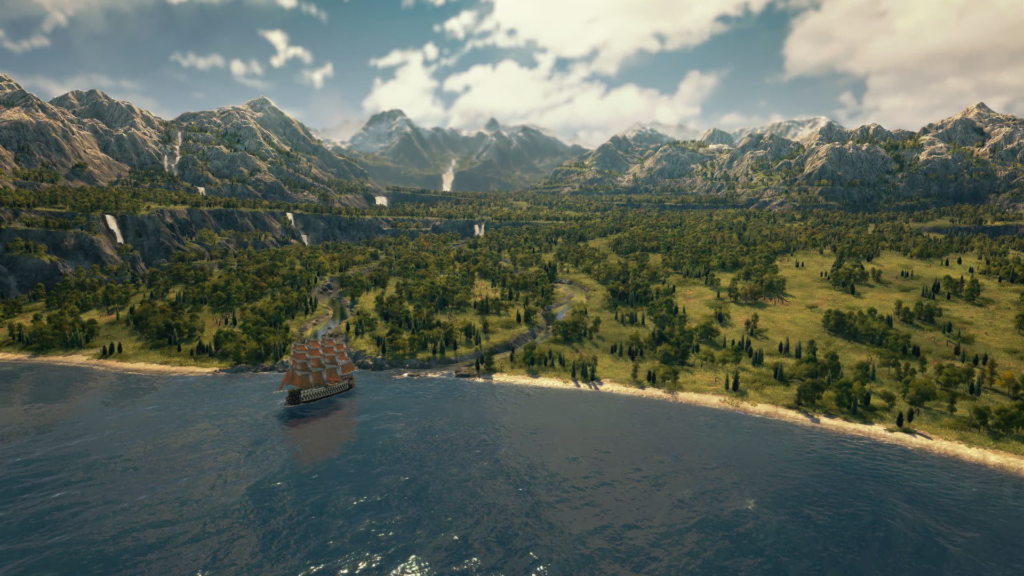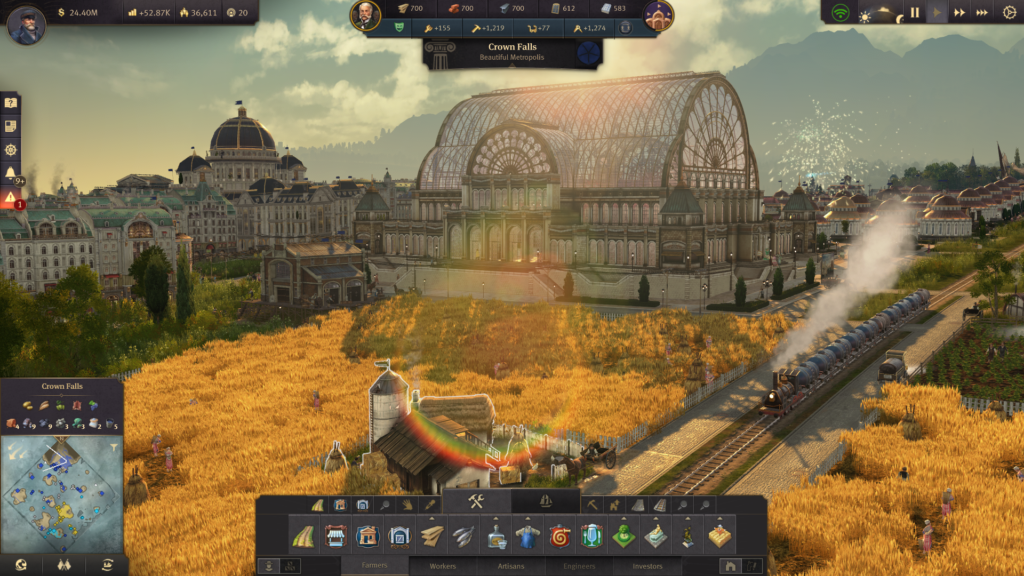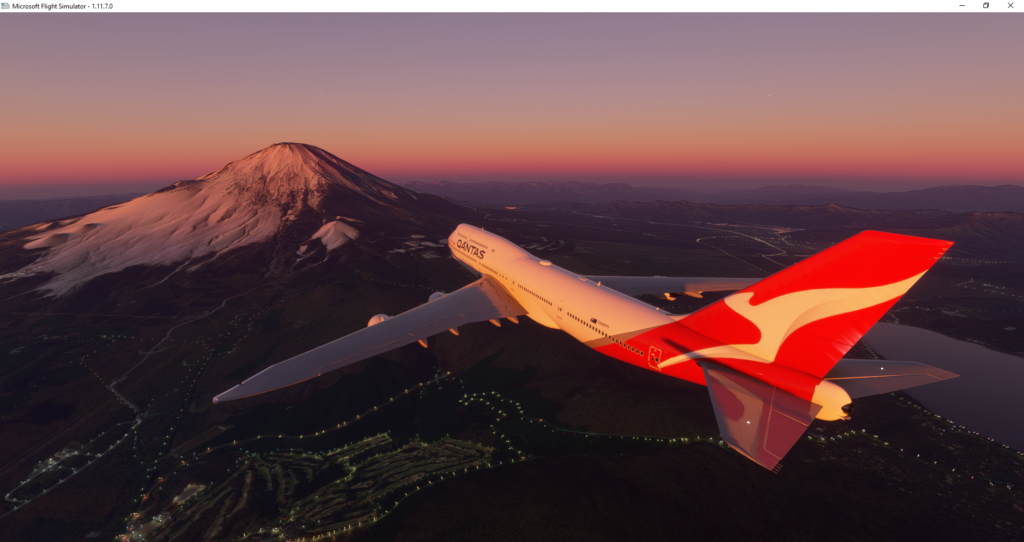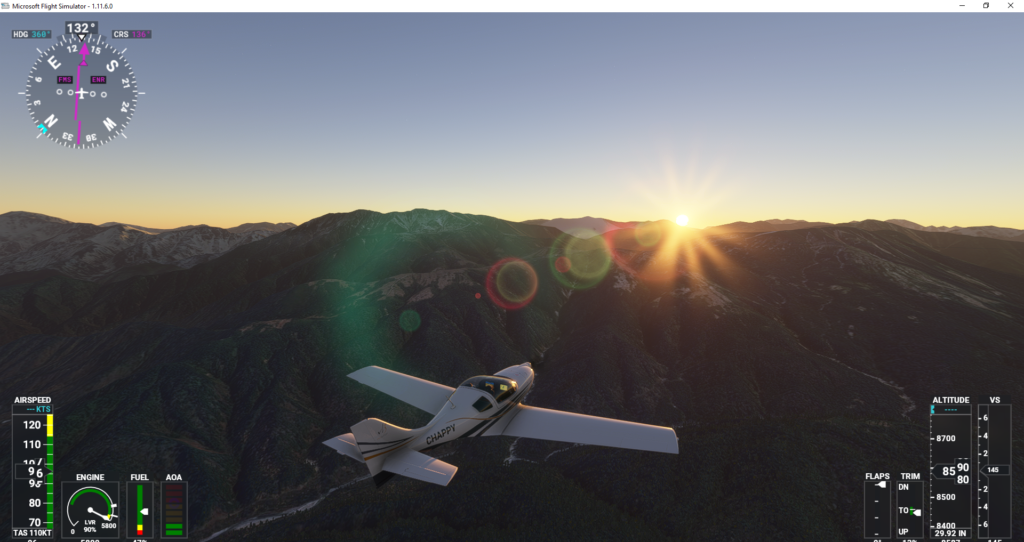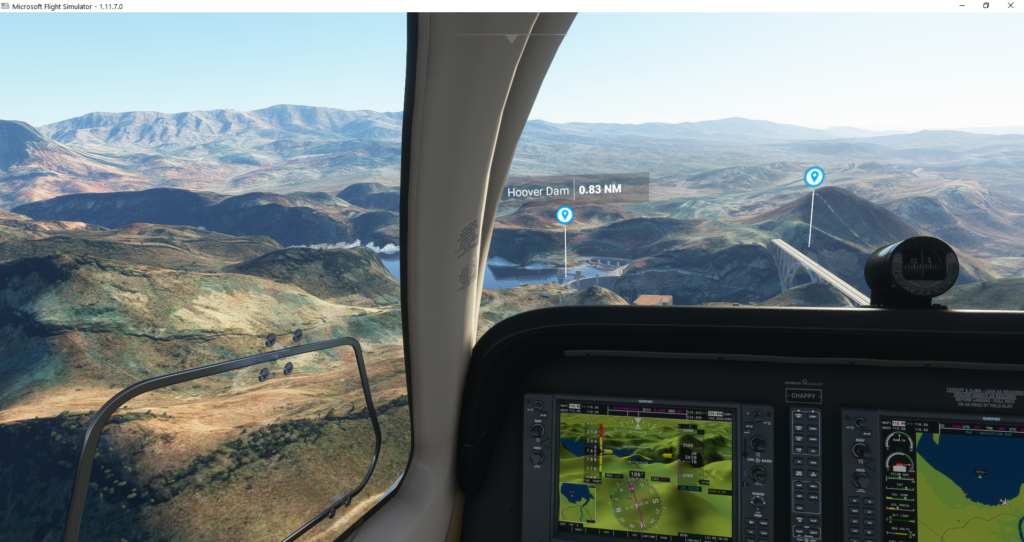Merry Christmas and Happy Holidays, everyone! I hope you’re all safe and well.
This year I played the usual new and new-ish strategy games. XCOM: Chimera Squad, Shadow Empire, and Crusader Kings III were all strong releases. Amongst 2019 games, Age of Wonders: Planetfall was a solid combat-focused 4X and Planet Zoo was a charming and pleasant management game.
My great discovery was the Anno series: I’ve put almost 150 hours into Anno 1800 alone, a game that combines gorgeous production values, engrossing city management, and Paradox-like depth and replayability. On some evenings, I tinkered with coffee production chains or proudly set up new tractors. At other times, I found myself plunged into a city-building version of the Empire: Total War successor I’ve always wanted, as my trading empire fought for its life across multiple continents. Whether trying to inaugurate a World’s Fair, or ensuring that the chocolate must flow, there is always something more to do. And I think the Anno series’ central idea — that society depends on long, elaborate production chains — felt especially relevant this year.
I also replayed many classic strategy games, ranging from the 1990s to the 2010s. These included Supreme Commander: Forged Alliance Jagged Alliance 2, and a raft of 4X titles: Imperialism 2, Master of Magic, Age of Wonders III, Civilization IV, and Alpha Centauri.
The standout was Alpha Centauri, which I would argue is still the best 4X game ever made: it has some of the best science fiction worldbuilding in any game, while also shining on a mechanical level. With Alpha Centauri, 1990s strategy game design reached its peak: it offered the player a dazzling range of toys without falling into the pitfalls that afflict modern games, such as bloat or an over-emphasis on “balance”. And it could teach the modern Civilization series how to handle warfare: armies, navies, and air forces are punchy and interesting to use, without either the problems of Civilization IV‘s stacks of doom or the subsequent one-unit-per-tile rule.
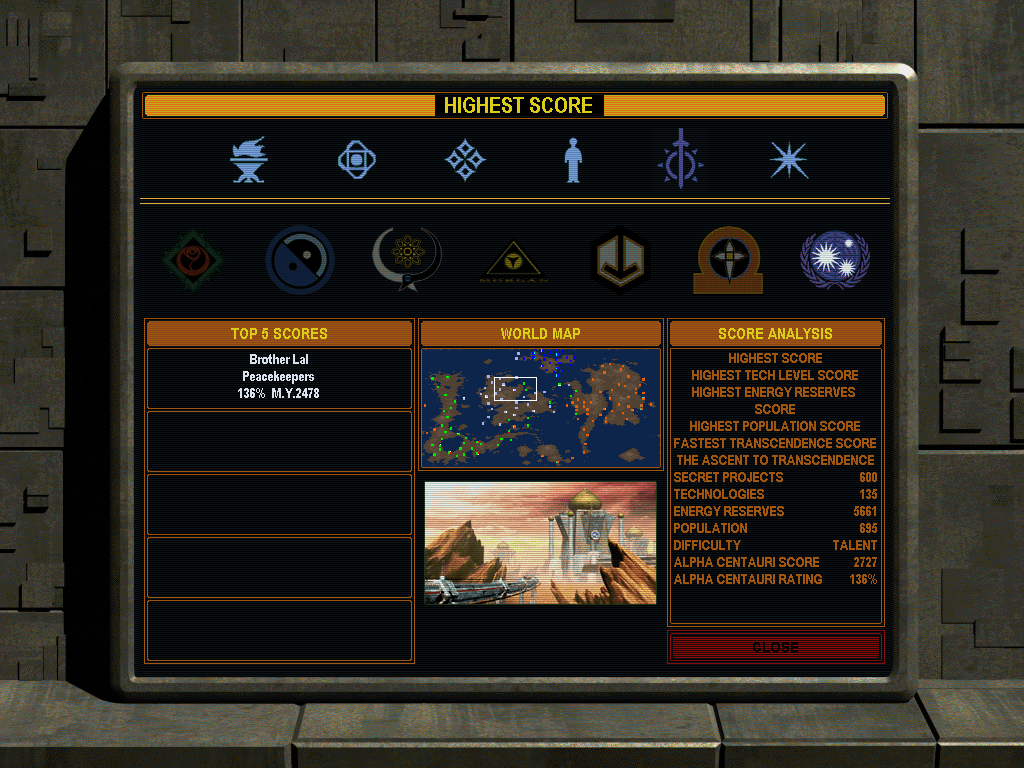
Finally, this was the year in which I tried new and different types of games, both on PC and on Switch:
X4: Foundations and the early access version of Mount and Blade II: Bannerlord made me realise how much I love dynamic worlds, where I can set my own objectives and carve out a niche alongside a map full of NPC factions trying to do the same.
I returned to flight sims for the first time since childhood with the beautiful, accessible Flight Simulator. Within a few hours, I was confidently taking off, flying, and landing Cessnas; now I’m sightseeing around the world. Flight Simulator proved to be my gateway back into the genre: I went on to test the waters of combat sims with War Thunder. In the last week, I bought Star Wars: Squadrons and IL-2, and I’m currently eyeing DCS World’s modern aircraft.
Bloodstained: Ritual of the Night is my first real experience with Metroidvanias (I played Symphony of the Night many years ago but didn’t get far). Now that I’m nearing the end, I see why people love this genre! The blend of combat and exploration reminds me of a much easier, 2D version of Dark Souls — I love working out where to go next, based on the latest ability I’ve unlocked — and its goofy, over-the-top cast and setting are far from what the ominous title suggests.
Assassin’s Creed: Odyssey was my first Assassin’s Creed game since AC4: Black Flag. Its much better, more mobile combat and gorgeous depiction of Classical Greece won my heart. I just need to play more…
The cheerful, colourful Slime Rancher benefits from being in first person and in 3D. This gave it a satisfying physicality when puttering around the ranch or exploring the wilderness — something I found missing in top-down games such as Stardew Valley. It’s also very, very cute.
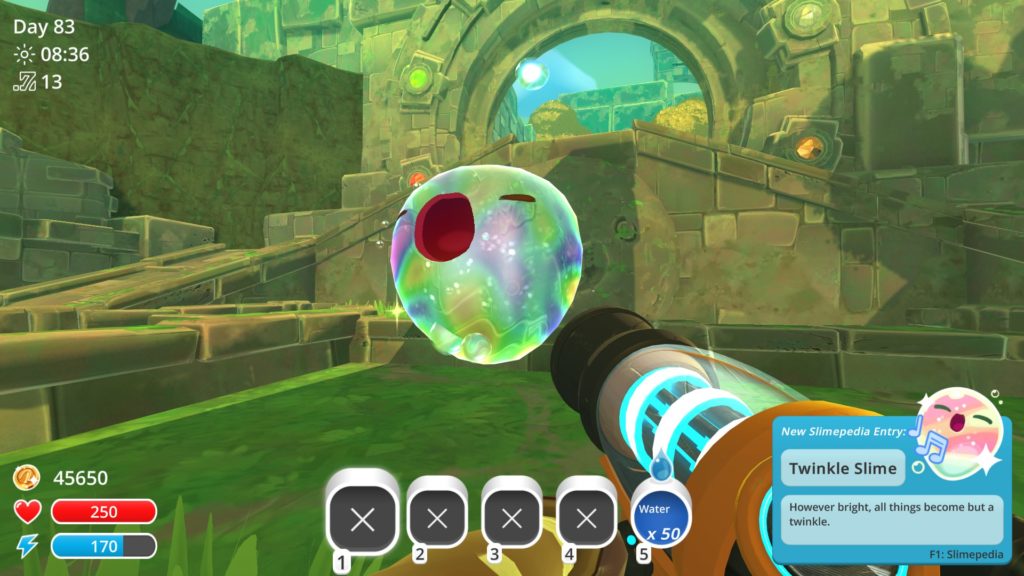
After casually playing Mario Kart games for years, and never doing well on anything faster than 100cc, this was the year in which I set out to master Mario Kart 8 Deluxe. Along the way, my admiration grew for how well-designed MK8 is — its balance of skill and luck, its charm and character, how well it eases the player into a state of flow. MK8 also became the first game to get me back into online multiplayer since Eugen’s Wargame series, years ago. Just don’t ask me to do well on Rainbow Road…

Nintendo has the knack of making me try even genres I don’t normally play: Mario Galaxy is delightful, although I’m still at the button-mashing stage in Mario Tennis Aces. Animal Crossing: New Horizons offered a pleasant experience that easily fit into my Switch routine.
My most notable Switch release of the year was a third-party game. Hades combines fast-paced action with good writing: the more I played, the more I realised how cleverly it blends a modern interpretation of Greek myth with the original themes. I cleared it for the first time on my 17th attempt, and narratively this is just the end of the beginning.
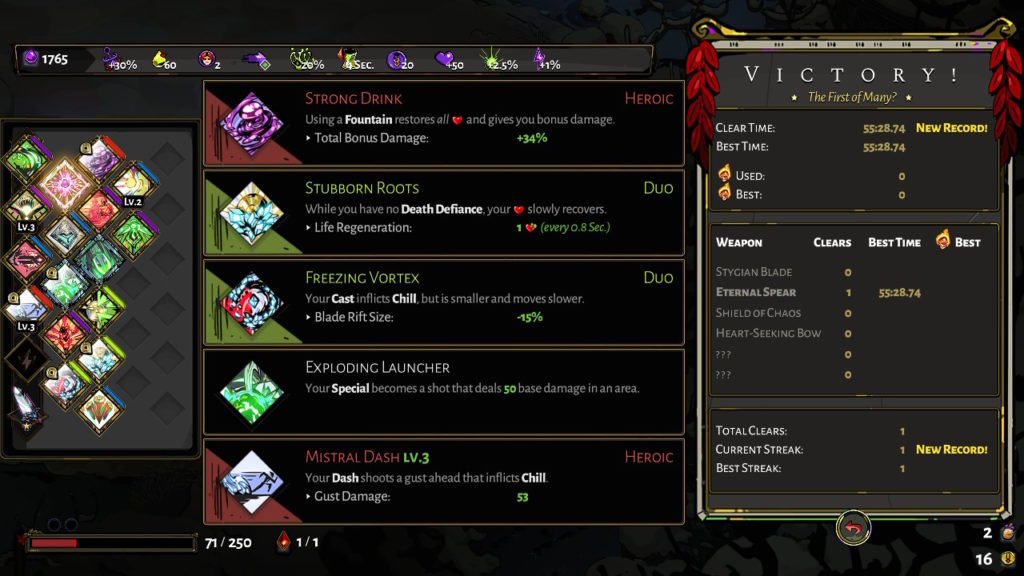
Amongst other third-party games, Two Point Hospital was an excellent port and a good game, albeit one that dragged on slightly too long. I enjoyed improving my virtual swing in Golf Story — while practicing for the final course, I revisited every previous course and consciously made an effort to use every tool the game placed at my disposal. Finally, the delightful A Short Hike was my favourite short-form game in years.
Best wishes to all of you for 2021, and I’ll see you next year.

